Discovering Jewish Traditions Among India's Pashtuns
In a captivating interview, Dr. Eyal Barry shares his encounters with Indian Pashtuns who exhibit Jewish customs, reveals an ancient genealogical book he uncovered, and recounts a harrowing experience of being surrounded by hundreds of Muslims at a mosque.
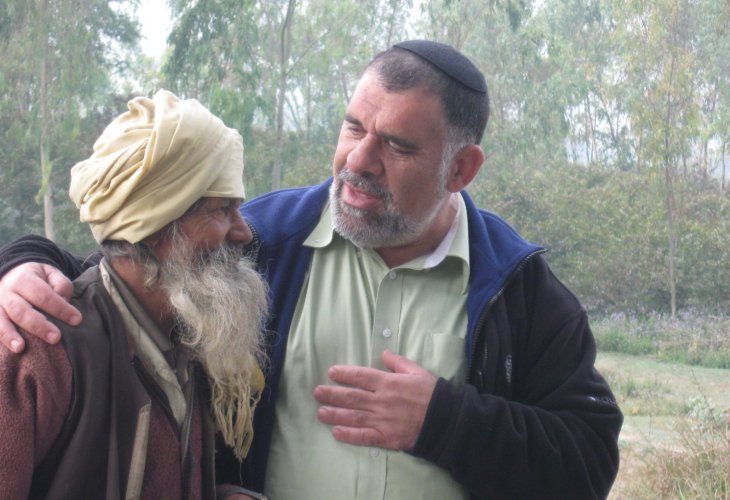
The Pashtuns are an ethnic group of Iranian origin, numbering around 50 million people worldwide. The largest concentration resides in Pakistan and Afghanistan, but many live in community villages in India and Kashmir. Over the years, various theories about their origins have been presented. According to one, the Pashtuns trace their lineage to the Ten Lost Tribes, though they generally practice Islam.
Dr. Eyal Barry, 62, from Bet El, studies the communities of dispersed Israelites. His first encounter with the Pashtuns was during a trip to India, which became his life's mission. He traveled across India and Kashmir, meeting with them, trying to discern if they are indeed descendants of the Lost Tribes, uncovering an ancient genealogical book in a remote Kashmiri village that shed light on the mystery.
"I Was Surprised to See Women Lighting Candles"
"The official religion of the Pashtuns is Islam," Barry explains. "Yet many associate themselves with the communities of Israelite exiles. I embarked on a long and arduous journey, hoping to find even a small part of those exiles."
Barry's adventurous journey was on behalf of the late Rabbi Eliyahu Avichayil, founder of the "Ami-Shav" organization. "Rabbi Avichayil gave me a detailed list of customs unique to the Jewish people, to verify the claim that the Pashtuns are originally Jewish. The list was based on a historic responsa concerning Eldad ha-Dani, a ninth-century Jewish trader and traveler who claimed to be from the Ten Lost Tribes.
"After weeks in India, the Jewish findings among the Pashtuns astonished me. In some homes, there was strict separation between meat and dairy, echoing Jewish dietary laws. Pashtuns abstain from eating camel meat and milk, unlike their Muslim neighbors who prize it."
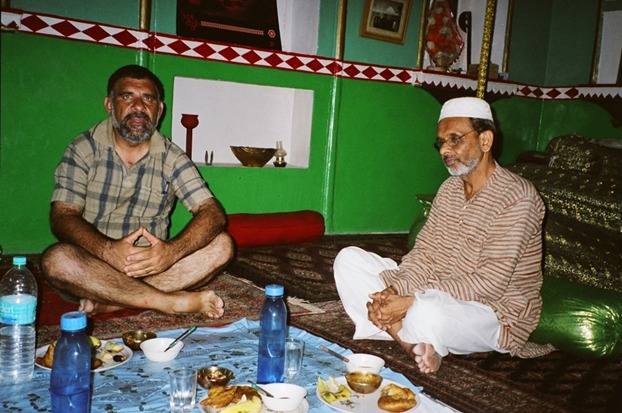 Meeting with Sufi Sheikh Inam at Ajmer
Meeting with Sufi Sheikh Inam at AjmerBarry was also surprised by another custom: "In some homes, I saw a special shelf where women lit candles every Thursday night. Before lighting, they purified themselves and wore festive clothes, lighting the candles in butter oil cups with self-made wicks."
"Pashtun women in Pakistan and Afghanistan also followed this practice. But when the Taliban seized Afghanistan, they threatened women continuing the tradition with death."
Tell us about other traditions you found."Many Pashtuns perform circumcision on the eighth day after birth, with a godparent present. As boys grow, their side-locks are never cut. For their daughters, a celebration is held at age 12, when they start covering their hair."
"The 'Bani Al-Lawar' family I met showed profound devotion to King David, or 'Prophet Daoud' as they call him. Pashtuns marry only among themselves and aren't permitted to marry non-Pashtun Muslims. They have their own cemeteries where non-Pashtuns are not allowed to be buried."
"They Planned to Kidnap Me"
During his research in Kashmir bordering India, Dr. Barry focused on the village of Gotlibagh near Ganderbal. One evening in Ganderbal, after meetings with local Pashtuns, Barry awaited transport back to his hotel. "Standing by the road, a car stopped, and the Muslim driver offered me a ride to the city. Despite signs to decline, after weeks of kind treatment from Kashmiris, I trusted him and entered. As we drove, he called someone speaking Kashmiri, 'The Israeli is with me.'"
How did he know you were Israeli?"He likely investigated me, knowing exactly who I was and where I came from," Barry explains. "After a long drive, we stopped at the entrance of the white-marble mosque in Srinagar. The driver took me out, placing me in its courtyard surrounded by 300 Muslims in white robes. It was frightening, but I tried staying calm."
In pitch darkness, I stood, one Jew against hundreds of Muslims, fearing for the worst. In moments, they shouted 'Infidel, infidel' at me in chorus, breaking the silent night. Shortly after, the mosque's imam approached, ordering them to take and search my bag."
Did you fear for your life then?"Yes. Those were long, difficult hours, as I stood in the courtyard with utter uncertainty. They searched for incriminating evidence, but thankfully, my student ID from the University of Kashmir was inside. It sparked a discussion among them before I was told I was free. I quickly made my way down the street, realizing hundreds were following me."
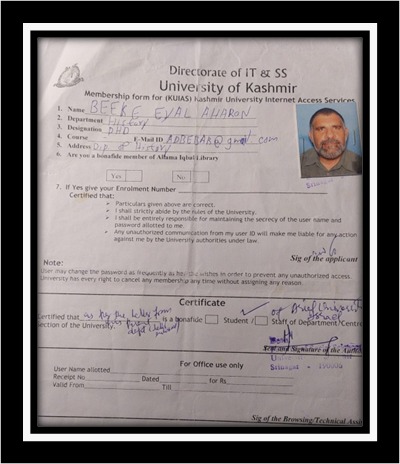 The study ID that saved Barry
The study ID that saved Barry"I saw a small grocery about to close. I rushed in, bought a water bottle, and asked the owner to call the police. The group advanced toward me outside, and I prayed."
"Minutes later, an officer on a motorcycle arrived," Barry recounts. "Rather than saving me, he dragged me out, and the crowd beat me. After a while, he put me on his motorcycle, taking me to a nearby police station. I was briefly questioned and told to leave Kashmir the next day."
A Surprising Discovery in a Remote Village
Despite the frightening incident, Barry continued his quest: "Even in India's remotest parts, Pashtuns insisted they were 'Bnei Yisrael,' but I needed proof. I knew they had ancient genealogies. I vowed not to return home until I found them."
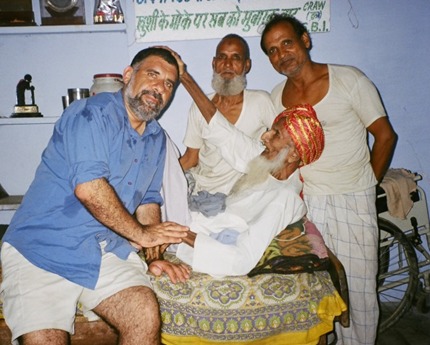 Barry receiving blessings from Habib Miyan, a 138-year-old sage
Barry receiving blessings from Habib Miyan, a 138-year-old sage"No. My approach was interviewing Pashtuns for information. During an interview in Rajasthan with Dr. Abdul Jabbar Khan, he directed me to a genealogical record-keeper in a nearby village, Sardar Mohammad Khan. I arrived at his rural home, discovering ancient, worn books dating back centuries. The genealogy began with Adam, continued to Noah, the Patriarchs, and the Twelve Tribes, concluding with the surprising statement: 'Pashtun ibn Yahud (Pashtuns are of Judah's tribe).'"
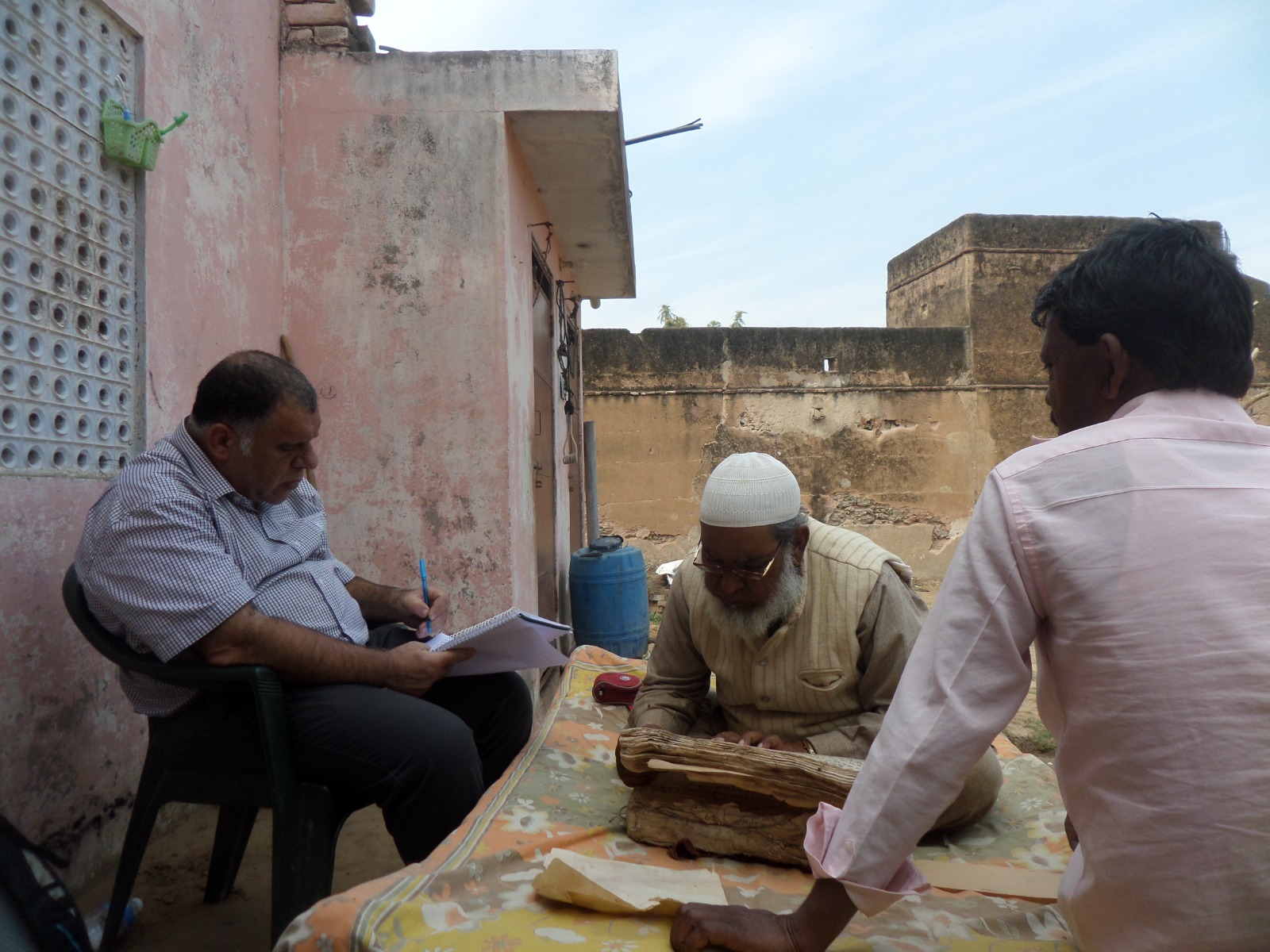 Translating the ancient Pashtun genealogy
Translating the ancient Pashtun genealogy"Those were emotional moments," Barry admits. "I continued reading, finding their full connection to King Saul and descendants, realizing these Pashtuns, as genealogies affirm, descend from King Khas Abad al-Rashid Israelite – Malikh Pathan. I worked tirelessly, translating the work into Hebrew, knowing my struggles were worth presenting the historical connection linking this remote group to the Jewish people."
"Hoping to Host Them in Israel"
Finally, we ask Dr. Barry if he sees a bridge connecting Pashtuns and Jews. "Recent years indeed saw efforts toward an Israeli-Pashtun bridge. Notable is Pashtun Professor Navras Afridi studying in Israel and leaders from 'Anjuman al-Pathan' visiting Israel. Plans for a joint research institute in Tonk, Rajasthan, were shelved due to COVID-19's impact."
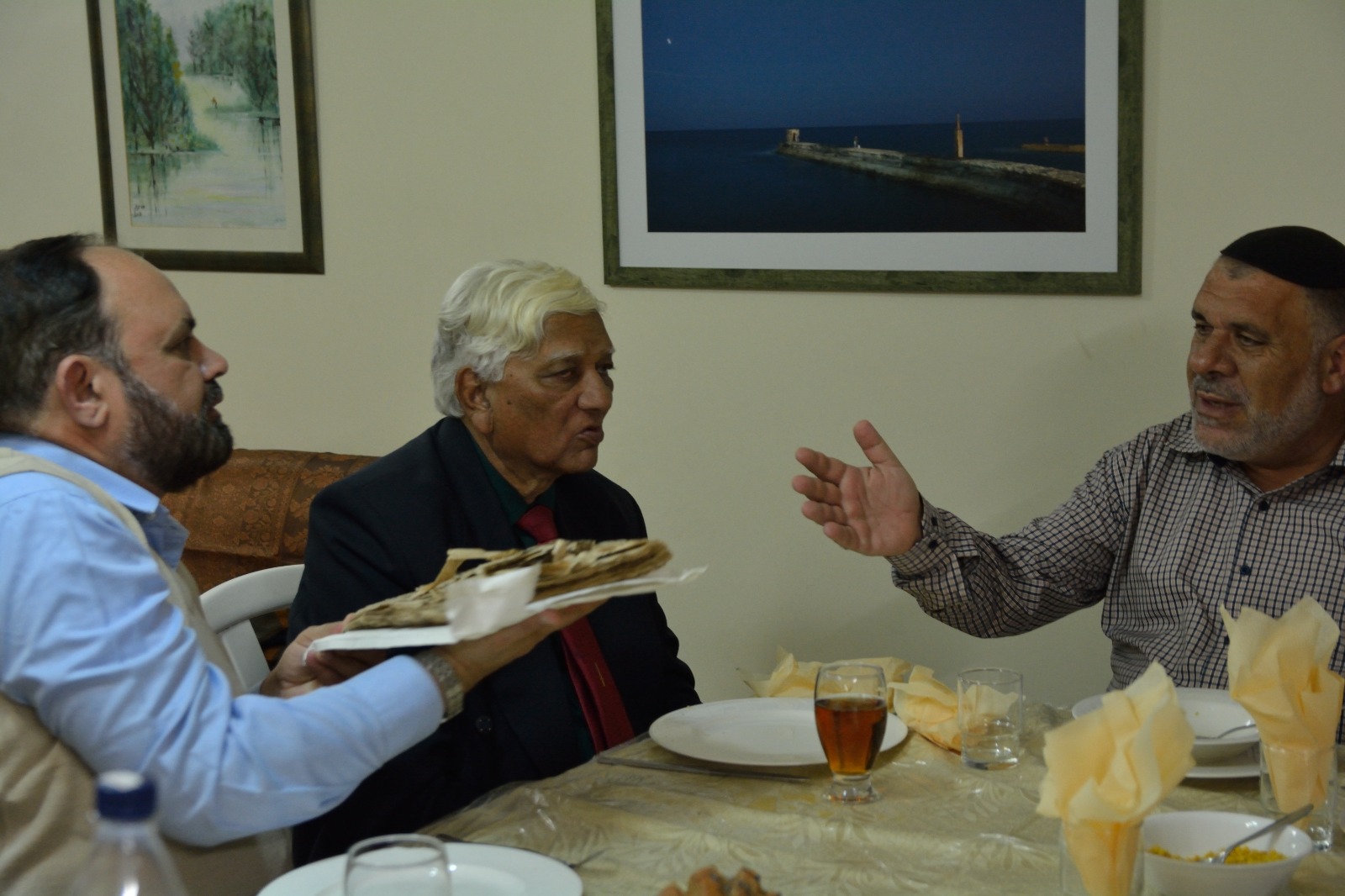 Anjuman President Abdul Rason Khan at Barry's Bet El home
Anjuman President Abdul Rason Khan at Barry's Bet El homeBarry notes that in recent years, radical Muslim clerics from Pakistan infiltrated India, aiming to instill a radical Muslim identity among Pashtuns: "They want Indian Pashtuns to cut ties with Israel, as in Pakistan and Afghanistan. I have good relations with Pashtuns expelled from those countries now in Europe and America."
"We maintain contact through Zoom, studying Torah and Jewish history. We hope to host them in Israel soon, praying for the ingathering of all Judah and Israel's exiles to the Holy Land," Barry concludes.

